GOLD Learning Early Years Online Symposium 2022
GOLD Learning Early Years Online Symposium 2022 provides the latest evidence-based continuing education for health care professionals working with families with children aged 0-3 years. As research in the area of early childhood brain development and the importance of healthy relationships grows, it's more important than ever for health care professionals to stay up to date. Professionals have an important role to play in supporting healthy childhood environments that promote optimal brain development and mental health for infants and young children.
This information-packed lecture pack provides a multidisciplinary look at socioemotional development in infants and young children ages 0-3 and how to put research into practice.
Want to Sign Up as a Group of 5 or more? Contact us at [email protected]
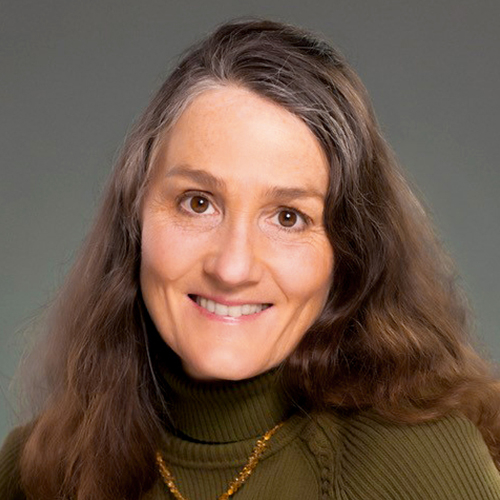

Sonia Story developed the Brain and Sensory Foundations training to provide in-depth, comprehensive training in the use of innate rhythmic and infant primitive and postural reflex movements for addressing sensory, learning, physical, behavioral, emotional, social, and speech challenges. Sonia trained directly with Harald Blomberg, MD and Moira Dempsey, among many other mentors. Her training courses are approved for professional continuing education for occupational therapists, physical therapists, and massage therapists.
Sonia was a presenter at the 2018 Autism One conference on how innate neurodevelopmental movements help with sensory issues. Her work has been featured in the book, Almost Autism: Recovering Children from Sensory Processing Disorder, and in the books Special Ed Mom Survival Guide; Family Health Revolution; and Same Journey, Different Paths, Stories of Auditory Processing Disorder.
Sonia is currently enrolled in Master's program in Movement Science.
1. Delegates will be able to list at least 3 reasons why the innate infant movements are important to development.
2. Delegates will be able to describe evidence showing the connection of disrupted infant movements with neurodevelopmental challenges.
3. Delegates will be able to describe the results of using innate infant movements later in life to overcome learning challenges and other neurodevelopmental issues.
In this engaging presentation we discuss the important role of innate infant movements in human development and what can happen when these innate movements are disrupted. We answer the question: Are neurodevelopmental challenges associated with disruption of innate infant movements in early life? And we explore the evidence for using these innate infant movements later in life to overcome learning and other neurodevelopmental challenges.
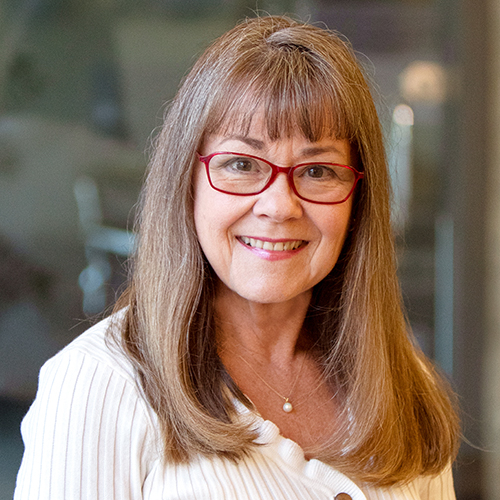

Ruth Anne Hammond is the author of Respecting Babies: A Guide to Educaring for Parents and Professionals (Zero to Three, 2019), and is a consultant for infant/toddler care and education. Having been mentored by Magda Gerber, founder of Resources for Infant Educarers, she teaches and mentors parents and professionals in the US and abroad. She served on RIE’s board of directors for many years and was President from 2006 through 2011. She was on the faculty of Pacific Oaks College & Children’s School as both a member of the Senior Adjunct Faculty and a Master Teacher in the Infant/Toddler-Parent Program for 17 years. She is currently on the board of directors of Families Forward Learning Center in Pasadena, CA and serves as chair of the Programs Advisory Committee. Ms. Hammond earned a Bachelor of Fine Arts in Dance from Southern Methodist University and a Master of Arts in Human Development, specializing in Infant/Toddler Studies and Leadership in Education, from Pacific Oaks College. She is a longtime member of psychologist Allan Schore’s interpersonal neurobiology study group.
1. Describe how self-regulation and self-discipline are different.
2. List the components of self-regulation, according to Allan Schore’s Regulation Theory.
3. Explain three ways to facilitate self-regulation in daily interactions with infants and toddlers.
How a child is cared for in the earliest months and years of life, pre-birth to three or so, can foster the implicit development of what will be seen as self-discipline in the preschool years and later. In this workshop, participants will have the opportunity to connect the dots between respectful, attuned caregiving, self-initiated activity, authentic communication and the development of self-regulation, the necessary precursor to healthy self-discipline.
We will explore the basics of Dr. Allan Schore’s Regulation Theory, which integrates Bowlby’s classical Attachment Theory and modern interpersonal neurobiology, as well as practical ways to put it into practice in the home or anywhere infants and young children are being cared for. The Educaring Approach, which will be referred to, offers replicable strategies and tools for building the secure relationships that form the basis for children to develop into to peaceful, cooperative and confident people who exhibit the benefits of self-discipline.
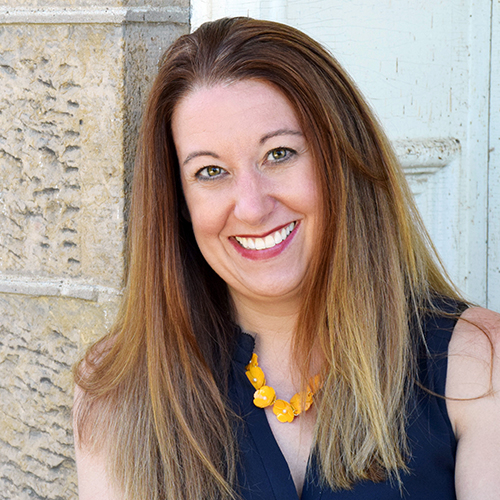

Gretchen Becker Crabb is an Occupational Therapist, Licensed Professional Counselor, and Endorsed Infant Mental Health Therapist. She is also a Certified Lactation Counselor, La Leche League Leader, and Brazleton Newborn Observation (NBO) trainer.
Gretchen’s passion is rooted in fostering lifelong relationships and connection through co-regulation in pregnancy and beyond. Her unique approach to lactation support and therapy is rooted in culturally attuned sensory, somatic, and trauma-informed mental health techniques.
Gretchen owns and operates a private practice in Madison, Wisconsin. For 21 years, she has provided developmental, trauma, feeding, and attachment support for tiny humans and their caregivers in birth to three, preschool, private practice, and peer group settings. Gretchen is an international speaker, reflective supervisor, and infant mental health consultant. In these roles, she offers compassionate, experiential, and reflective holding spaces for professionals. She is a proud United States Air Force spouse and mother of three boys.
Topic: Infant Mental Health: What Does It Look Like in Practice? - [View Abstract]
Topic: Scent-Sational Connections: The Role of Olfaction in Development - [View Abstract]
Topic: Sensory Processing and Breast/Bodyfeeding: Using Co-Regulation to Support the Feeding Relationship - [View Abstract]
Topic: Vestibular Processing: Using the Sixth Sense to Support Lactation and Parent/Infant Relationships - [View Abstract]
1. Participants will describe the theoretical foundations of infant mental health.
2. Participants will identify the basic infant mental concepts and strategies to promote health and well-being of provider, caregivers, and child.
3. Participants will explain ways of bringing concepts of infant mental health into their practice.
In this presentation, we will dive into the world of infant mental health and explore the unique ways that providers promote relationship development in families and communities for the first five years and beyond. We will discuss the basic philosophies and strategies used in the field of infant mental health, then engage together in an interactive and thought-provoking case study. Somatic techniques, reflective strategies and cultural considerations will be woven throughout to deepen learning and curiosity-- bringing the concepts to life and promoting the integration of infant mental health concepts into your daily practice.


Gretchen Becker Crabb is an Occupational Therapist, Licensed Professional Counselor, and Endorsed Infant Mental Health Therapist. She is also a Certified Lactation Counselor, La Leche League Leader, and Brazleton Newborn Observation (NBO) trainer.
Gretchen’s passion is rooted in fostering lifelong relationships and connection through co-regulation in pregnancy and beyond. Her unique approach to lactation support and therapy is rooted in culturally attuned sensory, somatic, and trauma-informed mental health techniques.
Gretchen owns and operates a private practice in Madison, Wisconsin. For 21 years, she has provided developmental, trauma, feeding, and attachment support for tiny humans and their caregivers in birth to three, preschool, private practice, and peer group settings. Gretchen is an international speaker, reflective supervisor, and infant mental health consultant. In these roles, she offers compassionate, experiential, and reflective holding spaces for professionals. She is a proud United States Air Force spouse and mother of three boys.
Topic: Infant Mental Health: What Does It Look Like in Practice? - [View Abstract]
Topic: Scent-Sational Connections: The Role of Olfaction in Development - [View Abstract]
Topic: Sensory Processing and Breast/Bodyfeeding: Using Co-Regulation to Support the Feeding Relationship - [View Abstract]
Topic: Vestibular Processing: Using the Sixth Sense to Support Lactation and Parent/Infant Relationships - [View Abstract]
2. Describe how the olfactory system impacts feeding, relationship and safety outcomes.
3. Describe ways to support feeding and co-regulation using olfactory strategies.
Though so obvious, the sense of smell is quite integral to well-being and human connection. As the loss of smell has been highlighted as one of the main symptoms of COVID, it invites a deeper understanding of the functional impacts of olfactory differences in children and caregivers. In this presentation, we will learn about the cultural history and neurological basis of olfaction. We will explore how smell plays a role in feeding, interpersonal relationships, and safety as well as olfactory strategies to promote physical health and co-regulation.
IMPORTANT: In this presentation we will do experiential work, so please have a journal, the following scents and food available:
One Citrus Scent (e.g. lemon, lime, orange)
One Woodsy/Earthy Scent (e.g. leaves, rocks, soil)
One article of clothing worn by someone you are close to (e.g. spouse, child, close friend, parent)
Carrot or other raw vegetable to eat


Graham Music is a psychotherapist, trainer, manager and thought leader. He is a Consultant Child and Adolescent Psychotherapist at the Tavistock Centre where he has worked for over 20 years, and has been adult Psychotherapist for over 30 years. Formerly Associate Clinical Director of the Tavistock Clinic’s Child and Family Department, he has developed many innovative programs, including setting up services in over 40 schools and a range of services working with the aftermath of child maltreatment and neglect. His clinical specialty for decades been understanding and working with trauma. He supervises and teaches nationally and internationally and has a particular interest in linking cutting-edge developmental findings with therapeutic practice. His publications include Respark: Igniting Hope and Joy after trauma and depression, (2022) Nurturing Children: From Trauma to Hope (2019), Nurturing Natures: (2016, 2010), Affect and Emotion (2001), The Good Life: (2014) as well as co-editing From Trauma to Harming Others (2021).
1. Explain how neglect is very different from overt trauma.
2. Describe how being with people who are numbed can be challenging to professionals as we too can feel dulled down.
3. Explain how we can work to 'respark' and enliven people when they are in such states.
There is a group of children who pose a very particular challenge to professionals. These are children who have lacked the kind of early empathic and attuned interactions that most children have, the experiences that give rise to empathy and genuine interest in other people and in life itself. These might be children who come from backgrounds of extreme neglect, but we see something similar in avoidant attachment, in learned helplessness, and also in some responses to trauma, such as dissociation. Neglected children have expectations of relationships which are very dulled down, even desolate, and they barely show interest in relating emotionally. The talk suggests that there is a spectrum of neglect, from the most severe experiences of terrible institutional homes to children who had very emotionally absent parents, maybe due to severe parental depression, or very avoidant cut-off attachment styles. It will tease out the different challenges of working with such states.
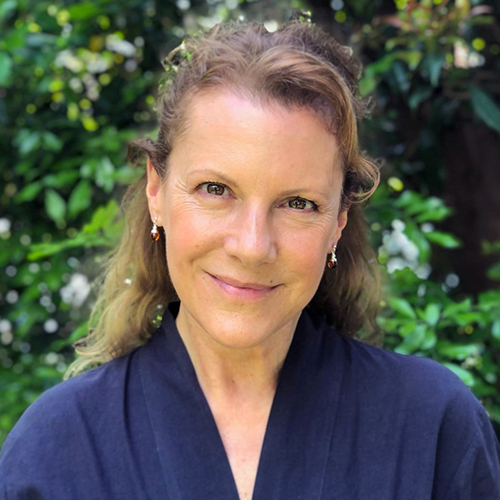

With over 25 years’ experience as a relationship counsellor, parents’ group facilitator, mental health educator, partner and mum, Elly Taylor has become an internationally known parenthood preparation and perinatal relationship expert and the award-winning author of Becoming Us. Elly’s passion is preparing parents for a happy and healthy family—at any stage in their parenthood journey, and especially in a challenging world. Her Becoming Us approach includes fathers and partners in all aspects of pregnancy, birth and beyond, harnesses the attachment bond between couples to stabilise them through the life changes and challenges of parenthood and links both parents into community services to support the mental, emotional and relational wellbeing of the whole family.
Elly has served as an advisor for numerous university research projects and her ground-breaking Becoming Us developmental framework has now become a comprehensive multi-disciplinary education and professional training and courses for parents. In a full circle moment, Elly recently trained midwives, allied health and therapy professionals in her local community and now Becoming Us Nest Building Sessions are preparing expectant parents in the hospitals where her children were born. Elly lives in Sydney, Australia with her firefighter husband, their three kidults and an abundance of pets.
Topic: Communication and Conflict - How Connection Supports Both - [View Abstract]
Topic: Including Fathers and Partners to Support Perinatal Mental Health and Marriages - [View Abstract]
1. Describe three common myths regarding the transition to parenthood.
2. List four of the psychosocial stages of pregnancy and early parenthood.
3. Explain three ways to include fathers and partners in perinatal preparation and postpartum support.
The “transition” into parenthood is culturally a time of great joy, excitement and celebration. But our “Bon Voyage” attitude to parenthood appears to be setting families up to fail. Research tells us new parents are struggling: currently 1 in 3 mothers and 1 in 5 fathers suffer from anxiety or depression during the perinatal period. Added to this, a whopping 92% of couples report increased conflict and 67% a decline in relationship satisfaction in the first few years of family. So, what’s going on here? Is there a better way? And what can perinatal professionals do about it?
In this presentation, we’ll first bust some unhelpful myths of parenthood. Next, participants will learn that while parents may expect having a baby is the destination, it’s just the beginning. Parenthood is like travelling deeper and deeper into foreign territory: every new stage has it’s own surprises, joys, challenges and unexpected rewards. And the journey never ends.
We’ll explore ways to prepare parents for the stages of early parenthood (even long after their baby has joined them) in ways that support the mental, emotional and relationship wellbeing of mothers, fathers and parents, so their whole family can thrive.
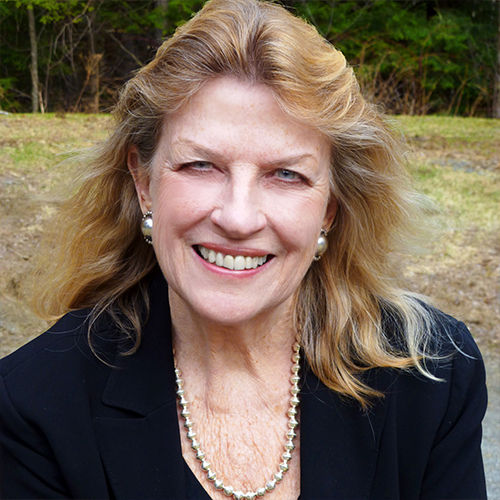

Cheryl Charles, Ph.D., is an innovator, author, organizational executive and educator. Throughout her career, Cheryl has focused on the well-being of children, families, communities and the environment that supports us all. Cheryl is the Co-Founder, President and CEO Emerita of the Children & Nature Network (C&NN), www.childrenandnature.org. She currently is Adjunct Faculty and Executive Director of the Nature-based Leadership Institute at Antioch University New England, an elected local school board member, a member of the Steering Committee for the International Union for the Conservation of Nature’s Commission on Education and Communication and Co-Chair of IUCN’s #NatureForAll, www.natureforall.global. She served as founding National Director of the pioneering K-12, interdisciplinary environment education programs, Project Learning Tree and Project WILD. Cheryl is author, editor and designer of a wide variety of publications. She lives in Vermont, USA, a short walk through the woods from her son, daughter-in-law and two nature-loving grandchildren.
1. Describe the cognitive, physical, emotional and social benefits to people of all ages, and especially children, from direct experiences with nature in their everyday lives.
2. Describe the literature that supports these benefits.
3. Explain evidence-based recommendations for achieving these benefits in diverse settings.
This presentation describes the many benefits to children from direct, meaningful experiences outdoors in nature. Drawing from decades of international leadership in the worldwide movement to reconnect children with nature, and standing on curated reviews of the underlying research, Dr. Charles offers insights and recommendations for connecting people of all ages—and especially children—with nature in their everyday lives. In these uncertain and stressful times, the benefits can be life-changing and even life-saving. Stress is reduced, mental health improves, and overall health and well-being is enhanced. Examples of successful strategies and approaches for making these connections, personally and professionally, will be provided. Applications for health, education, business, community planning, and other sectors will be included as well.
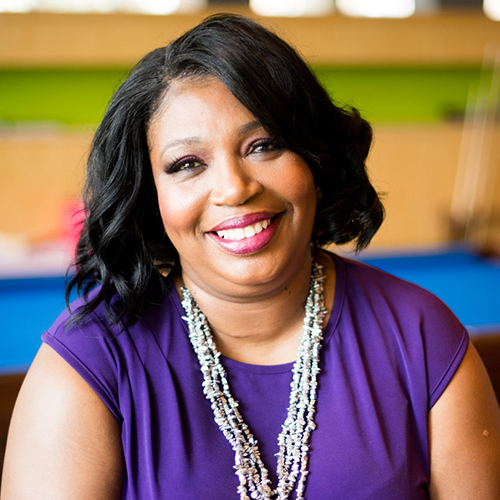

Althea T. Simpson, MBA, MSW, LCSW, RPT-S, is an innovative trainer, psychotherapy private practice owner, founder and President of Unicorn Life Training and the Black Play Therapy Society, and host of the Chronicles of A Play Therapist podcast. She is the author of Hurt to Healing: Child Witnesses of Domestic Violence and Their Invisible Injuries. Althea has a diverse background including research, mental health, and organizational consulting. A Certified LEGO® SERIOUS PLAY® Facilitator reinforcing a process of creative thinking and problem-solving, Althea facilitates thought-provoking and experiential skill enriching workshops for mental health professionals, corporations, and organizations throughout the United States. Althea’s passion is utilizing the healing powers of play to effect change on an individual and organizational level.
IG: @altheatsimpson
IG: @brickmagicplaytherapy
Facebook: https://www.facebook.com/unicornlifetraining
Twitter: @altheatsimpson
TikTok: @altheatsimpson
Youtube: https://www.youtube.com/channel/UCexheSp4-M-A-sW5w1aU5eQ
Play is an important milestone for babies and toddlers as it helps with development and reasoning skills. Play also holds a crucial role in providing a safe, caring, and protective attachment relationship between caregiver and child. Through pretend play, caregivers can help children express thoughts and emotions. Emotions are responses to different stimuli and children can learn appropriate ways to work through their emotions. Through storytelling caregivers can help children identify emotions without labeling emotions as “good” or “bad.” Caregivers who engage children in reading and storytelling promote brain development and imagination, develop language and emotions, and strengthen relationships. Learn more about the importance of play, the stages of development and how play works before language and memory are developed and examples of activities that encourage imaginative play.
Accreditation
American Montessori Society (AMS) CPD Hours
This activity is approved by the American Montessori Society for 6 AMS CPD Hours.
ACM CPD Hours
This is an Australian College of Midwives CPD Endorsed Activity. This program is approved for 8 ACM CPD Endorsed Hours.
CERPs - Continuing Education Recognition Points:
Applicable to IBCLC Lactation Consultants, Certified Lactation Consultants (CLCs), CBEs, CLE, Doulas & Birth Educators. GOLD Conferences has been designated as a Long Term Provider of CERPs by IBLCE--Approval #CLT114-07. This program is approved for 8 R-CERPs.
Midwifery CEUs - MEAC Contact Hours
This program is accredited through the Midwifery Education & Accreditation Council (MEAC) and is approved for 8 Hours, the equivalent of 0.8 CEUs. Please note that 0.1 MEAC Midwifery CEU is equivalent to 1.0 NARM CEUs.
Nurse Contact Hours
This nursing continuing professional development activity was approved by the American Nurses Association Massachusettsan accredited approver by the American Nurses Credentialing Center’s Commission on Accreditation for 8 Nursing Contact Hours
Nurse Contact Hours are valid until 9/15/2024.
If you have already participated in this program, you are not eligible to receive additional credits for viewing it again. Please send us an email to [email protected] if you have any questions.
Additional Details
Viewing Time: 8 Weeks
Tags / Categories
(IBCLC) Psychology, Sociology, and Anthropology, Attachment & Relationships, Child Behavior & Dysregulation, Childbirth Education, Infant & Child Health & Development, Infant Development & Growth, Infant Mental Health, Infants with Neurodevelopmental Challenges, Lactation & Breastfeeding, Perinatal Mental Health, Pregnancy, Labour & Childbirth
How much time do I have to view the presentations?
- The viewing time will be specified for each product. When you purchase multiple items in your cart, the viewing time becomes CUMULATIVE. Ex. Lecture 1= 2 weeks and Lecture Pack 2 = 4 Weeks, you will have a total of 6 weeks viewing time for ALL the presentations made in that purchase.
- Time for viewing the talks begins once you purchase the product. For Live Webinars & Symposiums, the viewing period begins from when the live event takes place. Presentations can be accessed 24/7 and can be viewed as many times as you like during the viewing period.
What are bundled lectures?
- Presentations may be available individually or via a bundled package. Bundled lectures are a set of lectures that have been put together based on a specific category or topic. Some lectures will be available in both individual and lecture form, whereas others will be available only via a bundled lecture pack.
Will there be Handouts?
- YES! Each lecture comes with a PDF handout provided by the Speaker.
Some lectures include a Q&A, what does that mean?
- During our online conferences, presentations that occur live are also followed by a short 15 minute Question & Answer Session. The Speaker addresses questions that were posted by Delegates during the presentation. We include the recording of these Q&A Sessions as a bonus for you.
How can I receive a Certificate?
- If this presentation offers a certificate, once you are done viewing the lecture or the lectures within a bundle, submit your attendance record in order to be able to download your certificate. You'll be able to see which credits are offered for the lecture by hovering over the "Credits Available" link within the "Speakers & Topics" tab.
Professionals that selected this package also viewed

|
|

|









